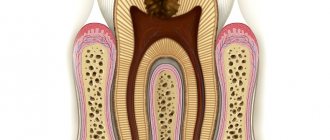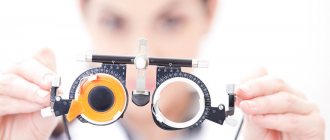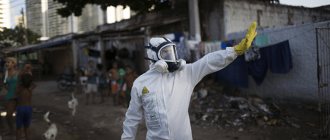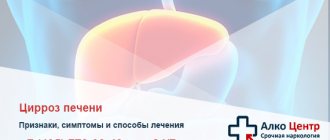Almost every person knows that his body has an immune defense that prevents the development of a large number of diseases. However, not everyone knows how it is structured, how the protective function is implemented and whether it can be influenced. This is a rather complex mechanism, consisting of many cells, reactions and processes. By contacting the MedArt medical center, you can get qualified advice from specialists who will diagnose, prescribe treatment and tell you how to boost the immunity of adults and children.
What is immunity
The immune system is responsible for the genetic makeup of the body. It performs both a protective and “repair” function - it eliminates problems that have arisen inside.
There are many processes going on in our body, and they require certain conditions that are maintained by temperature, pressure, oxygen level, etc. Changes in these parameters affect a person’s well-being: for example, when body temperature or pressure changes, he experiences discomfort.
Reference! The body's ability to maintain constant required values is called homeostasis. Any organs and systems are responsible for the dynamic balance of indicators: heart, kidneys, liver, blood vessels, lungs, etc.
Another task of the immune system is to prevent changes in the genetic composition of the body.
Immune system organs
Many people are concerned about the state of their immunity and try to maintain it. However, when wondering what to drink for immunity, not everyone imagines where this very immunity is located and what it consists of. Let's figure this out.
The organs of the immune system include:
- The tonsils are one of the main “security posts” of the body: immune cells located in the tonsils prevent the penetration of foreign agents through the nasopharynx, protecting the respiratory tract and gastrointestinal tract.
- Thymus (thymus gland) – located behind the sternum, in this organ the cells of the immune system, T-lymphocytes, mature and “train to identify enemies.”
- Spleen - today it’s hard to imagine, but at one time some doctors considered this organ to be useless, although it cleanses the blood of damaged cells and foreign agents (this process is called phagocytosis - elements of the immune system “devour” and “digest” “strangers”), and it also “stores a supply” of immune cells.
- Intestines – Peyer's (lymphoid) patches, located in the small intestine, protect the gastrointestinal tract from bacteria and viruses.
- Bone marrow is a producer of blood cells that maintain the constancy of genetic homeostasis (for example, leukocytes - white blood cells responsible for the body's immune response).
- Lymph nodes - located along the lymph flow, they contain cells that destroy bacteria that have entered the body. Elements that provide immune memory also “live” here: they “remember” foreign agents that they have already encountered.
The organs of the immune system perform 3 important functions:
- Produce immune cells.
- Provide the necessary conditions for their maturation.
- They are their repository.
There are a huge number of different immune cells located throughout the body. Their main types include:
- T-lymphocytes (t - from the name of the organ in which they mature, the thymus) - these include T-killers (destroying infected cells of the body and blocking the further spread of infection), T-suppressors (responsible for the duration and strength of immune reactions), T -helpers (stimulate the immune response, transmit information to other immune cells).
- B-lymphocytes - synthesize immunoglobulins (antibodies), special proteins that envelop and destroy foreign microorganisms and reduce the danger of toxic substances.
- Neutrophils and macrophages - provide phagocytosis, capturing and “devouring” foreign agents, and macrophages also transmit information to other immune cells about the microorganisms they destroy.
- Natural killers - their function is clear from the name, they kill, and their victims are cells mutated under the influence of viruses or a malignant process.
- Basophils - produce cytokines, special substances that attract the attention of other cells of the immune system during the development of inflammation.
- Eosinophils – fight allergens and helminths.
Reference! Foreign agents are usually called antigens. Specific proteins produced by lymphocytes to bind antigens - antibodies or immunoglobulins.
Clinical blood test with leukocyte formula
A clinical blood test with a leukocyte formula can identify many diseases. It reflects the state of hematopoiesis - the maturation and growth of blood cells in the bone marrow. The state of the immune system is indicated by the levels of white blood cells - leukocytes and the leukocyte formula. Monitoring the leukocyte formula in the dynamics of the disease will reveal complications, the spread of infection throughout the body, and the response to treatment.
With bacterial infections, you can see an increase in leukocytes and neutrophils with the appearance of their young forms in the blood.
With viral infections, on the contrary, leukocytes decrease, and lymphocytes predominate in the leukocyte formula.
The predominance of certain populations in the leukocyte formula helps in diagnosing the cause of inflammation. For example, in certain infections (for example, infectious mononucleosis), altered monocytes increase, and in allergic and parasitic diseases, eosinophils increase.
The presence of very young cells (blasts) in the blood is a sign of excessive activation of the bone marrow, and a low level of leukocytes and neutrophils without inflammation is a sign of its suppression.
Types of immunity
Immunity can be classified according to its origin and type of reaction. By origin it is:
- Congenital (nonspecific).
- Acquired (specific).
innate immunity begins to form in the mother’s womb (it is protected at this time by the mother’s immunity – through the placenta) and continues after the child is born. Colostrum helps the newborn's immune system develop. It is rich in blood cells and antibodies; milk contains much less of them. Colostrum can be regarded as a natural vaccination: it is what initially helps the child’s body fight foreign agents. However, innate immunity does not “remember” foreign agents. It reacts equally to all infectious agents. If the bacterium re-enters the body, nonspecific immunity will recognize it as a new threat. The easiest way to understand this is with the example of a splinter. Each time the body responds to its appearance with an inflammatory reaction, and it always develops in the same way as the first time.
Nonspecific immunity is beyond the power to fight severe infections, but it should not be underestimated. It is the innate immune system that is the first to “notice” a threat and respond to it. Then specific immunity is activated.
Specific immunity can be active or passive. Active is formed when it encounters new bacteria, viruses and other infectious agents for the body. Passive - with the help of colostrum and vaccinations. Every time it encounters a new foreign agent (viruses, protozoa, plant or animal poisons, allergens, bacteria, fungi, modified body cells), the immune system forms a “personal” response for a specific pathogen. She also “remembers” him. Next time, the immune system will already have information about this “enemy” and antibodies to it, so it will easily destroy it. This is how specific immunity is formed.
If innate immunity is the same for everyone, then acquired immunity is individual for each person. Much depends on the characteristics of the body, the number of vaccinations, and what foreign agents the human immune system has encountered.
Reference! Vaccination is one of the ways to form specific immunity. The patient is injected with weakened or dead infectious agents - in this state they are not able to provoke the disease. The immune system receives information about them, “remembers” them, and if it subsequently encounters them, it immediately begins to fight them. As a result, the disease either does not develop at all or is much milder.
According to the type of reactions, immunity is divided into cellular and humoral
Cellular immunity works thanks to MHC-I (major histocompatibility complex type I). This is a group of specific proteins; it is unique for each person and is found on all cells. MHC-I is a kind of identification card. It informs the immune system that this cell is part of the body, in other words, it is “our own.” If it changes under the influence of a virus or transforms into cancer, then metamorphoses occur with MHC-I (or it is completely “erased”). This is how the cell becomes “foreign”. Killer T cells and natural killer cells “monitor” the presence of MHC-I, and when they encounter its absence or an altered version, they destroy the cell.
Humoral immunity works differently. Its main “weapon” is antibodies produced by B-lymphocytes. Individual immunoglobulins are produced for each foreign antigen. Their molecules consist of 2 sections:
- Fc – they are the same for all antibodies;
- Fab – each type of immunoglobulin is unique.
Antibodies neutralize foreign agents through the Fab region. Therefore, it is “designed” according to the composition of the antigen.
Immune-related diseases
You need to understand that immunodeficiency can be a consequence of various diseases, which can only be dealt with with the help of medical intervention. In this case, as a rule, drugs that boost immunity are prescribed to adults or children. However, their appointment is possible only after preliminary diagnosis and diagnosis.
Primary immunodeficiency develops when the immune organs are damaged. This:
- Combined immunodeficiency. Among them is an immunodeficiency state, accompanied by eczema and bleeding of the skin, as well as defective lymphocyte syndrome.
- Violation of humoral immunity. One of the most common pathologies is Bruton's syndrome, characterized by a lack of immunoglobulins and a high concentration of certain antibodies.
- Gitlin's syndrome. This is not only a drop in immune defense, but also a disruption in the growth and development of the entire organism.
- Damage to immune cells. This is a high sensitivity to hypoplasia of the thymus, as well as certain types of congenital enzymopathies.
- Neutropenia. It can be either congenital or acquired. It is characterized by an extreme or significant drop in the concentration of neutrophil leukocytes.
Before you become interested in how to boost the immunity of an adult, you need to familiarize yourself with diseases that can lead to the development of secondary immunodeficiency. The most popular among them is AIDS. This disease is characterized by targeted damage to immune cells, such as killer T cells. In this case, the sick person becomes vulnerable to most infections and microorganisms. Due to the lack of complete protection, opportunistic flora is activated in his body, which under such conditions becomes the cause of the development of various pathologies, which leads to an almost inevitable death.
Example of an immune system response
The fight against a foreign agent is a complex process during which different immune cells work together in a coordinated manner. It is easier to imagine this using a specific example of an infection entering the body. Let's say you have a scratch on your skin. A wound is an “open gate to the body” for various bacteria. However, the cells of the immune system are already on guard! When tissue integrity is violated, the affected cells release cytokines that inform other immune cells about the onset of the inflammatory process. Cytokines are “message” for macrophages and neutrophils. They rush to the affected area, passing through the walls of the capillaries. The process of destroying microorganisms that have penetrated the wound begins. Macrophages and neutrophils “eat” and “digest” them. This is how innate, nonspecific immunity works.
In the process of “devouring” infectious agents, macrophages present antigen: they “demonstrate” fragments of destroyed bacteria to T-helpers and B-lymphocytes. They get acquainted with the information provided and, based on it, “develop” specific antibodies that will best cope with the destruction of these particular microorganisms. This takes quite a long time, up to 2 weeks, if the immune system encounters the infectious agent for the first time. The B lymphocytes then transform into plasma cells and produce antibodies that spread throughout the body through the bloodstream. Antibodies envelop the bacteria and literally “stick” to them, causing the microorganisms to die. Macrophages also rush to the rescue - it is easier for them to “devour” infectious agents when they are in a “bound” state. This is how specific humoral immunity works.
Reduced immunity: causes and symptoms
With age, immunity can decline. This occurs under the influence of unfavorable environmental factors, bad habits, and unhealthy lifestyle. A weakened immune system no longer has time to track all pathogens that have entered the body and kill them in a timely manner. This is how acute and chronic diseases develop and the aging process accelerates.
Reasons influencing decreased immunity include:
- Lack of daily routine, failure to maintain a balance between work and rest, lack of sleep.
- Bad ecology.
- Frequent or prolonged stress.
- Unbalanced nutrition: poor diet, too strict diets, fasting.
- Bad habits: abuse of coffee or alcohol, smoking.
- Lack of vitamins and minerals.
- Abuse of medications (they have a toxic effect on the body).
- Injuries, including burns.
- Heavy physical activity.
- Recent transactions.
Symptoms of a weakened immune system include:
- Exposure to frequent colds (more than 3 times a year).
- Increased fatigue.
- Sleep disturbances, feeling tired immediately after waking up.
- Lethargy, weakness.
- Broken state.
- Herpes rashes.
- Frequent inflammatory pathologies of the oral cavity (for example, stomatitis).
- Furunculosis.
- Low-grade (up to 38 degrees) body temperature for a long time.
- Purulent inflammation of the sweat glands.
- Frequent and long-term (more than 14 days) exacerbations of sinusitis or bronchitis.
- Gastrointestinal tract dysfunctions.
- Infectious diseases of the genital organs (mycoplasmosis, chlamydia, ureaplasmosis), the treatment of which is difficult and extends over a long period.
- Recurrent and chronic pathologies.
- Allergic reactions that did not exist before.
- Autoimmune diseases.
- Cancerous tumors.
Important! If you have symptoms of decreased immunity, you should definitely consult a doctor. Otherwise, immunodeficiency states may develop (decreased activity of humoral and cellular immunity).
Strengthening the immune system
Restoring immunity and preventing its deterioration are carried out in compliance with the same rules:
- High-quality, balanced nutrition (if necessary, take additional vitamin complexes, but only after consulting a doctor!).
- Moderate physical activity: swimming, running, walking, gymnastics, fitness.
- Increased stress resistance.
Reference! Strengthening the immune system in adults also means giving up bad habits: smoking, frequent drinking.
Most often, harmful bacteria and viruses enter the body through the nose, mouth, stomach and skin. Therefore, it is necessary to carefully observe personal hygiene - this will also strengthen the immune system. Visit your dentist regularly to prevent the development of pathologies of teeth and gums!
Special drugs called immunomodulators help stimulate the immune system. However, the doctor must decide on the advisability of taking them (as well as choose the means).
If you are experiencing signs of weakened immunity, make an appointment with an immunologist at the Otradnoe Polyclinic! Experienced doctors will conduct the necessary research, identify violations and prescribe the necessary treatment. You can also come for a consultation, even if you do not have any alarming symptoms, and get vaccinated with high-quality drugs.
Brief conclusions
- Immunity can decline at any age.
- This can happen both for internal reasons and under the influence of external factors.
- There are ways to strengthen the immune system on your own, but only if the body works without serious disruptions.
- To restore the body's defenses, you can contact an immunologist or a doctor of anti-aging medicine.
- The essence of the doctor’s anti-age approach is to eliminate various “shackles” on the immune system.











